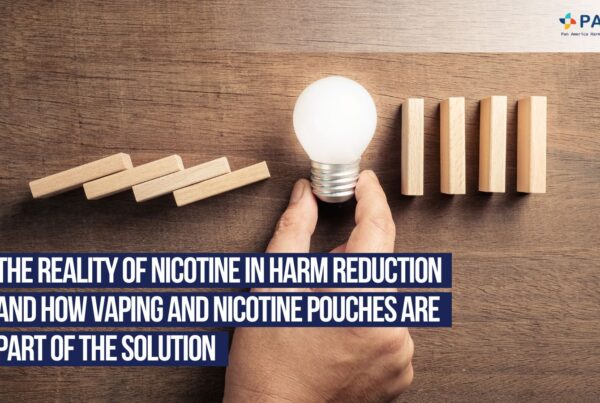Azzopardi, D et al., Caracterización química de las bolsas de nicotina orales "modernas" sin tabaco y su posición en los continuos tóxicos y de riesgo, Toxicología Química y de Fármacos (2021).
- Este estudio comparedcomparó los niveles de toxicidad de las bolsas de nicotina sin tabaco con el snus y la nicotina de terapia de reemplazo (NRT, por sus siglas en inglés). La investigación mostró que las bolsas de nicotina tienen un perfil de riesgo similar a la nicotina de terapia de reemplazo (NRT, por sus siglas en inglés) y deben colocarse entre el snus y las NRT como en el continuo de riesgo.
- El Snus tiene el 5% del riesgo de los cigarrillos tradicionales, los cigarrillos electrónicos tienen el 4% y la nicotina de terapia de reemplazo tienen alrededor del 2% del riesgo.
- La investigación concluye que las bolsas de nicotina pueden proporcionar una menor exposición a las toxinas que el snus, y tienen el potencial de ser efectivas para los consumidores que encuentran ineficaces la nicotina de terapia de reemplazo.
- La agencia de Administración de Alimentos y Medicamentos (FDA, por sus siglas en inglés) declaró que la "evidencia disponible no demuestra una iniciación significativa de estos productos en los jóvenes.”
- La nicotina de terapia de reemplazo (NRT, por sus siglas en inglés) se han considerado durante mucho tiempo alternativas más seguras al tabaquismo, pero la ingesta relativamente lenta y baja de nicotina a través de estos productos en comparación con los cigarrillos puede limitar su potencial para satisfacer los antojos de los usuarios.

